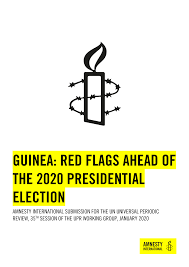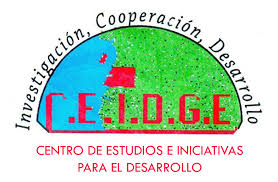A security blockade around the residence of Guinea’s main opposition leader, Cellou Dalein Diallo, has been lifted and security forces have withdrawn from opposition strongholds on the outskirts of the capital, Conakry, RFI reports.
Over the past two weeks, at least several dozen Guineans have died in clashes between protesters and security forces, following President Alpha Condé’s Oct. 18 reelection. Condé claims a contentious referendum in March allowed him to run again and circumvent a two-term limit. Many in Guinea disagree, The Washington Post adds:
 People flooded the streets last week and the opposition declared the results fraudulent after Guinea’s electoral commission announced that Condé had won 59 percent of the vote. An Internet blackout and eyewitness reports of government security forces attacking civilians suggest that Condé is willing to go to extreme lengths to remain in power….Tournons la Page (“Let’s Turn the Page”), a Pan-African activist group dedicated to strengthening democracy, issued a news release calling on Western powers to sanction the Guinean government, denounce post-election violence and protect civil society. And national organizations in other countries, like Y’en a Marre (“Fed Up”) in Senegal, which successfully thwarted a third-term reelection bid, are now extending solidarity to people in Guinea and elsewhere.
People flooded the streets last week and the opposition declared the results fraudulent after Guinea’s electoral commission announced that Condé had won 59 percent of the vote. An Internet blackout and eyewitness reports of government security forces attacking civilians suggest that Condé is willing to go to extreme lengths to remain in power….Tournons la Page (“Let’s Turn the Page”), a Pan-African activist group dedicated to strengthening democracy, issued a news release calling on Western powers to sanction the Guinean government, denounce post-election violence and protect civil society. And national organizations in other countries, like Y’en a Marre (“Fed Up”) in Senegal, which successfully thwarted a third-term reelection bid, are now extending solidarity to people in Guinea and elsewhere.
“Today is a sad day for African democracy,” said Sally Bilaly Sow, a Guinean blogger and activist living abroad. The government should take into account the will of the people who have a desire for change, he said.
 Witness testimonies, satellite imagery and videos authenticated by Amnesty International – which had warned of electoral violence – confirm that defense and security forces used live ammunition against protesters after the election.
Witness testimonies, satellite imagery and videos authenticated by Amnesty International – which had warned of electoral violence – confirm that defense and security forces used live ammunition against protesters after the election.
“We are crying for help,” said one rights advocate who complained that the international community has been “very timid” about intervention despite the number of innocent civilians killed for no reason:
No one knows how this will end up. The incumbent President doesn’t want to recognize his defeat. He wants to stay in power at any cost. I have the feeling that there is no interest in the international community despite massive human rights violations that were widely reported by Amnesty International, Human Rights Watch, etc.
 Given the scale of human rights violations inflicted on people in Guinea, Amnesty International raised concerns about the silence of the African Union and the Economic Community of West African States (ECOWAS).
Given the scale of human rights violations inflicted on people in Guinea, Amnesty International raised concerns about the silence of the African Union and the Economic Community of West African States (ECOWAS).
“Authorities must stop the use of firearms. The death of protesters, bystanders and local officials of the National Front for the Defense of the Constitution must also be independently, impartially and effectively investigated. If criminal culpability is found, those suspected must be brought to justice in fair trials before civilian courts,” said Fabien Offner, Amnesty International West and Central Africa researcher.
Things have calmed down—but they could easily heat up again. Guinea has a history of ethnic trouble, The Economist reports:
Last week in Conakry a man was stoned to death by Condé-supporting youths, says Amnesty International, a watchdog. His apparent crime was being of the wrong ethnicity in a government stronghold. Outside the capital there are reports of score-settling along ethnic lines.
A deal that might keep things calm looks remote—and “will not be enough to prevent another violent political crisis in the years to come”, says Gilles Yabi of the West Africa Think Tank in Senegal. If Mr Condé had just respected the constitution, democracy might have taken root. His decision to run again, says Mr Yabi, may have set the country back decades.
It is important to note that, although elections are critical to the transition of a country from authoritarianism to constitutional democracy, they can also serve as a tool for the survival of authoritarian governments, adds Brookings analyst John Mukum Mbaku. For example, authoritarian regimes in countries, such as Cameroon, the Republic of the Congo, and Equatorial Guinea have used elections to legitimize their leaders and remain in power indefinitely.







